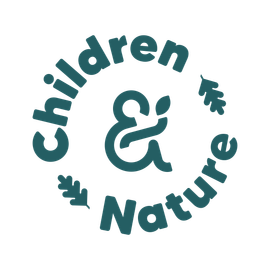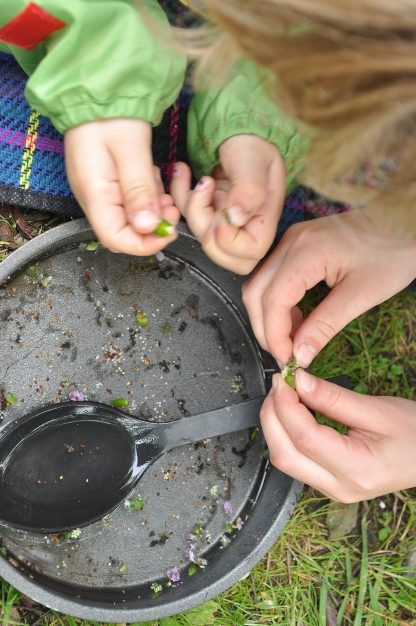Harriet Menter tells the story of Scotswood Community Garden in Newscastle-upon-Tyne and shares her top tips for setting up forest schools with early years groups.

Our top tips for Forest Schools in EYFS
Trust the process
Given the freedom and the support, children will play and they will learn through this play, even if the adult cannot immediately see what learning is occurring. One group of primary aged children who struggled with behaviour in the classroom spent nearly all their time at forest school playing quite unstructured games of chase and tag. We worried they were not learning enough. However the teacher reported that this group resolved issues and got on in class much better than they had previously which meant they were better able to get on with school work.
Observe and articulate the learning for others
Standing back and allowing the process to happen gives us time to really observe what is happening. We can then articulate the value of the process for others, advocating for unstructured play for all children.
Less is more (in terms of resources and planning)
Encouraging children to play with what they find in the natural environment, supports their creativity (as the stick becomes a horse, wand, paint brush, den etc.) and helps create a stronger connection to the natural world.
More is more (in terms of time and supporting adults)
Our research found the impact was higher (for children with social and emotional issues) with higher numbers of adults supporting children, and longer sessions which allowed time for deep immersion.

Forest School recognises play as an integral part of learning and development through its learner-centred processes.
Scotswood Garden is a longstanding environmental and community organisation and Local Wildlife Site based in the heart of our local neighbourhood. We provide a range of education, training, health and wellbeing services for people aged 0-90. We have been delivering Forest School programmes since 2007 and accredited Forest School training since 2013. We are an FSA recognised Forest School Provider.
Forest school sessions create a fun, supportive environment and provide children and young people with exciting, achievable tasks, enabling them to succeed and build confidence and self-esteem, and develop new skills which support their learning back in the classroom.
Forest School practice is informed by the work and teachings of educators such as Froebel, Pestalozzi, Margaret MacMillan and Waldorf Steiner, all of whom argued that children learn through doing, and/or highlighted the importance of children’s connection with the natural world. Froebel emphasised the importance of children’s play as ‘the highest level of child development. It is the spontaneous expression of thought and feeling’. Forest School recognises play as an integral part of learning and development through its learner-centred processes.
The Breeze Project was developed to support children and young people (CYP) who struggle in the classroom due to social and emotional difficulties. Over the last 3 years we have worked with five schools (one first, two primary and two secondary special schools) with CYP whose social and emotional difficulties stop them from achieving their full potential. The CYP have attended FS sessions once a week for between four months and two and a half years (term time only). The sessions are planned, delivered and evaluated by the Forest School leader and trainer from Scotswood Garden, together with school staff who undertake the training. The project has been evaluated by Newcastle University and has been found to have a significant impact on the CYP’s wellbeing .
The Breeze project
Read more about Scotswood's Froebel Trust funded project in our research library
Find out more

